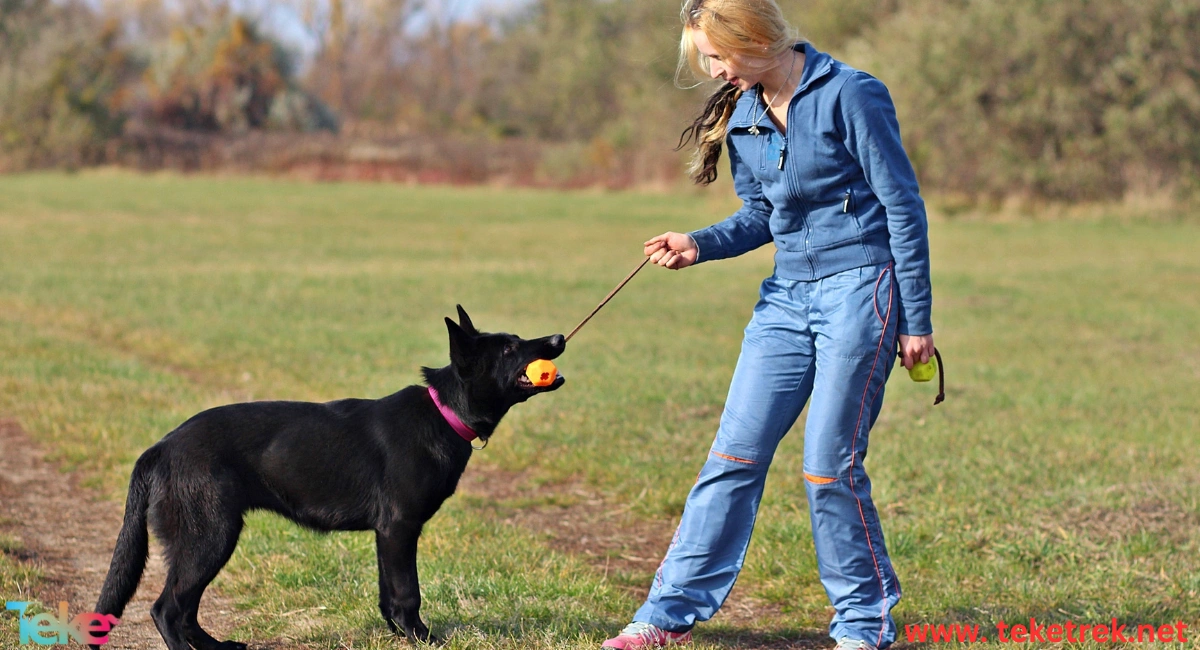For thousands of years, dogs have accompanied humans on their life journey, and this relationship has evolved into one of the deepest bonds between people and animals. The dog has never been just a pet; it has become a true partner in many aspects of daily life. At a time when psychological and social pressures are on the rise, the dog offers immense emotional and psychological support and significantly enhances overall quality of life. In this article, we shed light on the importance of the dog as an ideal companion and how it can be an essential part of social and family life, in addition to its positive impact on mental health, as well as tips for care and training.
The Dog as an Ideal Daily Companion
A dog is an ideal daily companion thanks to its loyalty and devotion, in addition to its energy and liveliness that make it a perfect partner for daily activities like walking and running. Many people find motivation to exercise and improve their lifestyle through morning or evening walks with their dogs. These activities are not only physical but emotional as well, as people feel happy and reassured while spending time with their dogs.
Dogs in Social Gatherings
Dogs play a prominent role in strengthening social bonds among individuals. In public parks, for example, people often strike up conversations because of their dogs, creating opportunities to build new friendships. Dogs also participate in community events such as “Dog Day” or dog races, helping to foster a more connected society where people share interests and enjoy time together.

Dogs and Outdoor Activities
One of the most enjoyable experiences with your dog is engaging in outdoor activities. Whether you enjoy hiking through forests, running in the park, or even camping, your dog makes an excellent companion. Dogs love exploring new places, and their excitement makes adventures more enjoyable. Trips to the beach or mountain areas are also ideal, as dogs love running and playing in nature.
Dogs in Family Life
A dog can become an inseparable part of the family, adding a spirit of love and warmth to the home. When children are involved in feeding or caring for the dog, they learn responsibility and compassion. A dog shares the family’s daily moments and becomes a friend in both joy and sorrow, strengthening familial bonds.
Mental Health and Dogs
Many studies have shown that having a dog improves mental health. Dogs help reduce stress and anxiety levels, offering their owners a sense of comfort and safety. Simply playing with a dog or having it nearby can alleviate feelings of loneliness. This is why dogs are often used in therapy and emotional support, especially for people with anxiety and depression. In this role, the dog proves to be a loyal friend to humans.
How to Care for Your Dog in the Summer
With rising temperatures in the summer, dog owners must take precautions to protect them from heat. Key tips include ensuring clean, fresh water is always available, avoiding outdoor walks during peak sun hours, and providing shaded resting spots. Hot surfaces like asphalt can harm a dog’s paws, so it’s important to be cautious and use protective creams if necessary.
Interaction Between Dogs and Children
Dogs are highly effective in developing children’s social and emotional skills. Through interacting with dogs, children learn values like compassion, respect, discipline, and responsibility. A dog in the home provides children with a sense of security and encourages emotional expression and better social interactions. Thus, dogs are ideal and safe companions for children.
Training Dogs for Walks
To enjoy walks with your dog, proper training from a young age is crucial. Using the right collar and leash, and teaching basic commands like “stop” and “come” are essential. Positive reinforcement through treats helps encourage good behavior. Regular training ensures that walks are enjoyable and safe for both dog and owner.
Types of Social Activities Dogs Enjoy
Dogs love participating in various social activities like visiting dog parks, joining group training classes, or competing in obedience or agility contests. These activities allow dogs to interact with others while strengthening the bond with their owner through play and challenge.
How to Choose the Right Dog for Your Social Lifestyle
Choosing the right dog depends on understanding your lifestyle and social needs. Active individuals who love adventure may prefer energetic breeds like Labradors or Huskies. Those who enjoy calm, indoor living might be better suited to small breeds like Chihuahuas or French Bulldogs. It’s also important to consider your living space, whether you have children, and how much time you can dedicate to caring for a dog. The right dog for one person may not suit another, depending on personal preferences and habits.

The Importance of Play in a Dog’s Life
Play and fun are essential to a dog’s life. They’re not just forms of entertainment but are crucial for physical and mental development. Through play, dogs develop social skills and learn how to interact with their environment and other beings. Play helps release excess energy, reducing negative behaviors like excessive barking or furniture destruction. It also stimulates the dog’s mind and prevents boredom or depression, especially in indoor environments. Interactive games such as fetch or puzzle toys improve focus and build confidence. Playtime also strengthens the relationship between dog and owner and contributes to physical health by keeping the dog fit and at an ideal weight. Therefore, play should never be underestimated—it’s the key to a healthy, happy, and balanced dog.
Dogs in Urban Life
In big cities, dogs face challenges such as noise, limited space, and a lack of open areas. However, with the right adjustments, dogs can live happily even in small apartments. Daily walks, indoor toys, and early socialization are crucial to prevent boredom and stress. Dogs are social animals, and this aspect of their life must be considered, especially in urban settings.
Conclusion
In conclusion, it becomes clear that the dog is not just a pet, but a loyal companion who brings warmth, joy, and responsibility into daily life. Thanks to their loyalty and intelligence, dogs can be invaluable friends to children, adults, and the elderly alike. Having a dog at home strengthens social ties, encourages physical activity, and reduces feelings of loneliness and stress. Dogs have a remarkable ability to sense human emotions, making them emotional supporters during tough times. It’s no wonder many people consider their dogs to be part of the family. The relationship between humans and dogs is a mutual bond built on love, trust, and care—making the dog truly an ideal companion for everyday life. By understanding their needs and providing proper care, we gain a lifelong friendship that never fades.





